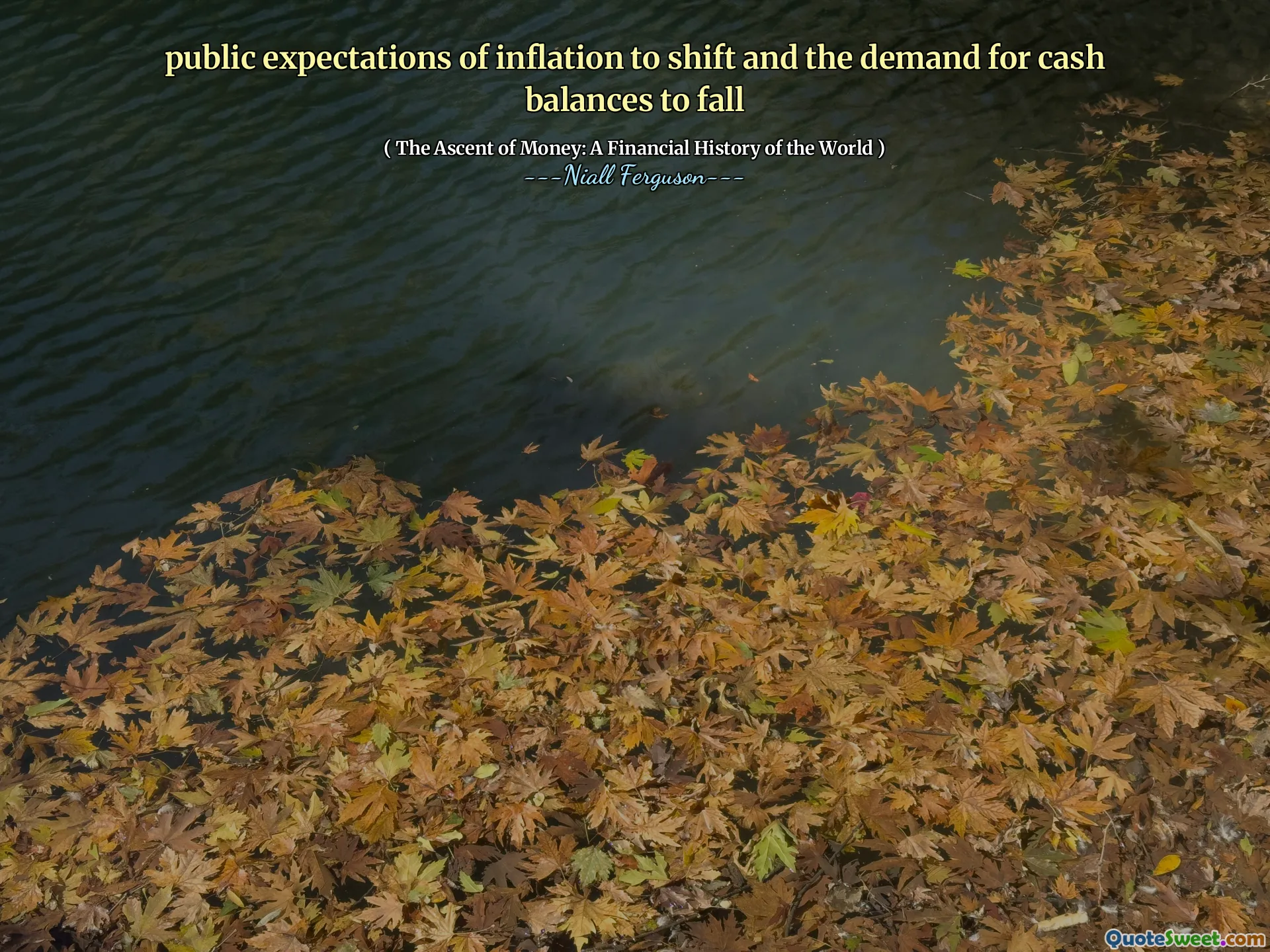
public expectations of inflation to shift and the demand for cash balances to fall
Niall Ferguson's "The Ascent of Money: A Financial History of the World" examines the historical evolution of money and its role in shaping economies. He highlights how public expectations of inflation can significantly influence financial behaviors, such as spending and saving. When people expect rising inflation, they tend to adjust their financial strategies, which can affect large-scale economic trends.
Additionally, Ferguson discusses the implications of these expectations on cash balances. As inflation expectations rise, the demand for holding cash may diminish, as individuals and businesses seek to invest or spend their money rather than see it lose value. This shift in behavior can lead to broader economic consequences, reflecting the intricate relationship between public perception, money supply, and economic stability.











